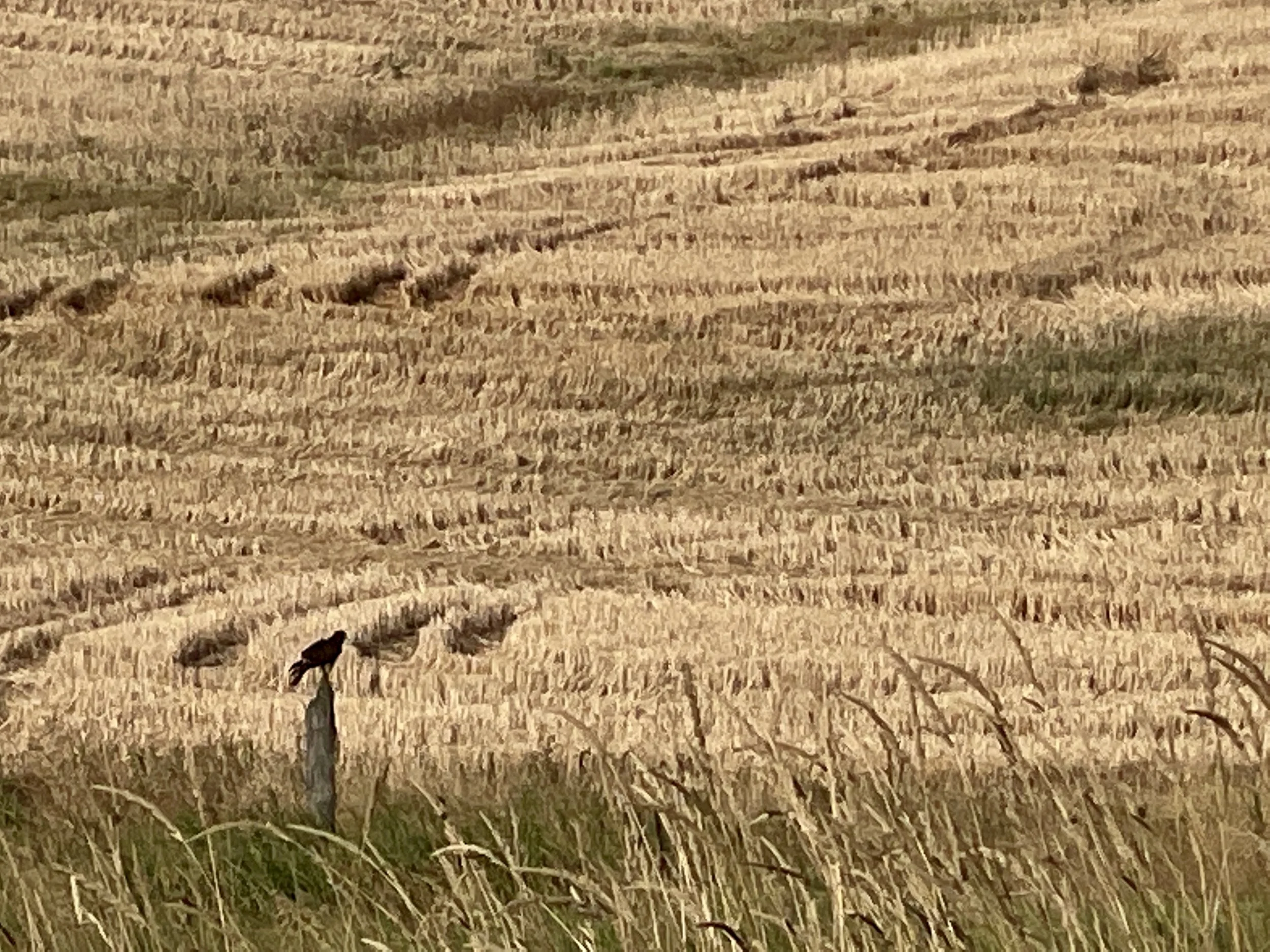Every Adventure Begins with a First Step
by Will Simpson
The entryway to this trail starts across the road from a multicolored group of rural mailboxes. The loose gravel trail parallels a significant tributary to Middle Potlatch Creek. You enter it skirting a flat, football-field-sized, dilapidated pasture of pale green invasive Reed Canary grass surrounded by wheat fields harvested last week. The trail is notable for its silence except for the accompaniment of what sounds like pepper-mill grinding in time to your boot's rhythmic footfalls. You might hear the occasional dog barking from the small rural settlement behind the trailhead called "Wilderville." The families in Wilderville come from a hodgepodge of economic strata, and there is a mishmash of homes. Some homes are new, modern, and multistory, with manicured lawns, well-maintained gardens, and basketball hoops in the driveways. Some are dilapidated doublewide trailers with dirt-bikes, four-wheelers, cars, trucks, trailers, campers of all sizes, and even old semi-trucks parked randomly around the property, mutt dogs roaming loose, and the proud display of a Trump 2024 flag on a slightly askew pole.
In the field alongside the trail, the sand-colored broom-like seed heads on the tall Reed Canary grass dance together in the breeze, creating a mesmerizing flow of wave-like movements. There is a post once part of this pasture's fencing way out in the field where the grasses end and the hills shoot up carpeted with wheat stubble from last week's harvest. Perched on this post is a raptor, too far away to identify. With her dark outline and small size, she's probably a juvenile. She's preening herself, first lifting her right wing and using her beak to fluff her chest feathers, then switching to the other side. She is relaxed in the warm morning sun, unperturbed by our presence.
Old Cottonwood Trees line the creek at irregular intervals with their silver trunks and natty branches. They show their age by the number of holes the woodpeckers have created. They have started losing leaves. The fallen leaves are like little golden chips dotting the trail.
The trail starts to close, slowly morphing into a narrow canyon. The trail stays on one side of the "one hop" creek. As the trail descends into the canyon, Cottonwood trees transition into Ponderosa Pines, and the canyon walls become too steep to be farmed. The Reed Canary grass is left behind and the shorter native Idaho fescue, bluebunch wheatgrass, and prairie junegrass prevail.
It's forecast to reach 100º today. It's cool now walking in the shade created by the canyon walls. The creek's surface is dry. It has retreated and now flows underground and out of sight. The canyon's closing walls create a microclimate, and as the air cools, the light becomes muted, and sounds are amplified as if the canyon walls create their weather, lighting, and sound stage. I notice the sun's warmth and hear songbirds, but they are too busy with their bird lives to hold still long enough for me to identify them.
The canyon walls burned a few years ago. The undergrowth has not yet fully returned. The sides of the canyon are covered with the survivors—giant old Ponderosa Pines with thick pumpkin-colored bark and dark fissures. A few succession species have moved in, including Nine-bark bushes already starting to turn blood red like the setting sun and Snowberry bushes with little white berries that are said to be indicators of the coming year's snowfall. If more berries mean more snow, we are in for a lot this year.
The moisture in the morning air mutes the sunlight in the canyon. We walk toward a sunny spot created by a turn in the canyon walls. To our right, in a group of Ponderosa Pine on the other side of the creek, we hear a Flicker's sharp, bright whistle. It comes at us like a gunshot, ricocheting around the canyon. We're all startled, and we see only her dark outline and the patch of white feathers above her tail as she bolts low to the ground, across the trail, between the creek and a stand of Ponderosa Pine repeating her panicked whistle.


